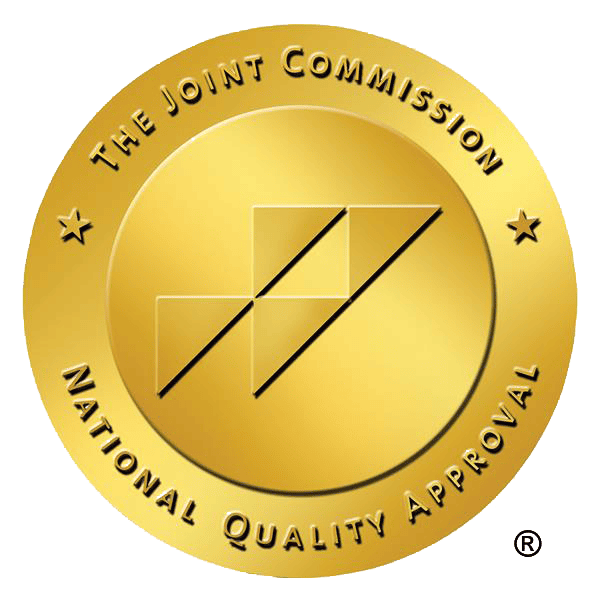Benzodiazepines, commonly known as benzos, are prescription drugs used to treat anxiety, insomnia, and other mental health conditions. However, these medications can be highly addictive and have the potential for abuse. Learning more about the signs of benzo addiction, the effects of long-term use, and the detox process for overcoming dependence on these drugs can be beneficial for people who want to overcome their benzo dependence and addiction.
What Are Benzodiazepines?
Some commonly well-known benzodiazepines include Xanax (alprazolam), Valium (diazepam), Ativan (lorazepam), and Klonopin (clonazepam). While these medications can be effective in treating certain medical conditions when used as prescribed, they also carry a risk of dependence and addiction when misused or taken long-term.
Why Are Benzodiazepines So Addictive?
People can become addicted to benzodiazepines through various means, such as self-medicating and taking higher doses than prescribed, using them illegally for recreational use, or using them for a prolonged period. The calming and euphoric effects produced by benzos can lead individuals to seek out these drugs as a way to cope with stress, anxiety, or other emotional issues.
Tolerance develops over time, leading individuals to require larger doses to achieve the desired effects. This cycle of increasing drug use often results in physical and psychological dependence and addiction to benzodiazepines.
How Do People Get Addicted to Benzodiazepines?
Benzos enhances the activity of gamma-aminobutyric acid (GABA), a neurotransmitter that inhibits brain activity and produces calming effects. When benzodiazepines bind to specific GABA receptors, they increase the efficiency of GABA, leading to a decrease in brain activity, which produces sedative, hypnotic, anti-anxiety, muscle relaxant, and anticonvulsant effects.
By enhancing GABA’s inhibitory action, benzos help reduce symptoms of anxiety, promote relaxation and sleep, and prevent seizures. However, prolonged use or misuse disrupts the natural balance of neurotransmitters, leading to dependence, tolerance, and addiction.
Short-Acting Benzodiazepines
Short-acting benzodiazepines typically have a faster onset of action and shorter duration of effect compared to long-acting benzos. These medications are often used for the treatment of acute conditions such as panic attacks, acute anxiety, or sleep disturbances.
Some common short-acting benzodiazepines include Xanax, Ativan, and Halcion. Short-acting benzos are more likely to cause withdrawal symptoms due to their rapid elimination from the body, making them potentially more addictive than their long-acting counterparts.
Long-Acting Benzodiazepines
Long-acting benzodiazepines have a slower onset of action and extended duration of effect. These medications are used to treat chronic conditions such as generalized anxiety or seizure disorders. Common long-acting benzodiazepines include Valium, Klonopin, and Librium.
Due to their prolonged half-life, long-acting benzos are less likely to cause withdrawal symptoms between doses. Still, they may accumulate in the body with repeated use, increasing the risk of dependence and the potential for addiction.
Why Are Benzodiazepines So Addictive?
Benzodiazepines are highly addictive due to their calming effect on the central nervous system. Regular use of benzos can also produce euphoric effects and alleviate symptoms such as anxiety and insomnia.
This makes benzodiazepines appealing to individuals seeking relief from emotional distress. The reinforcement of positive feelings can lead to repeated drug-seeking behavior and eventual addiction.
Signs of Benzo Addiction
Recognizing the early signs of benzo addiction is critical to getting the proper treatment early on. Some of the common indicators include:
- Increased tolerance, requiring higher doses to achieve the desired effect.
- Withdrawal symptoms when not using the drug, such as anxiety, irritability, and insomnia.
- Preoccupation with obtaining and using benzos leads to neglect of responsibilities and activities.
- Social or occupational impairment due to excessive benzo use.
In addition to the first signs of benzo addiction, there are other frequent signs as addiction progresses. These signs typically include:
- Increased tolerance, requiring higher doses to achieve the desired effects
- Withdrawal symptoms when not using the drug, such as anxiety, insomnia, tremors, or seizures
- Using benzos in ways other than prescribed, such as crushing pills for snorting
- The inability to function with using benzos
- Frequent headaches, dizziness, drowsiness, or blurred vision
- Problems thinking, concentrating, and remembering
- Frequent mood swings and becoming easily angered or irritable
- Doctor shopping to obtain multiple prescriptions for benzodiazepines
- Engaging in risky behaviors while under the influence of benzodiazepines
- Hiding or lying about benzo use
Short and Long-Term Effects of Benzo Addiction
Short-term effects of benzo addiction may include drowsiness, confusion, impaired coordination, slurred speech, and memory problems. Additionally, individuals may experience mood swings, irritability, and difficulty concentrating.
Long-term effects of benzodiazepine addiction can be more severe and include cognitive impairment and increased risk of accidents or injuries due to impaired judgment and coordination.
Chronic use can also lead to physical health issues such as respiratory problems, liver damage, kidney failure, elevated blood pressure, depression, anxiety, panic attacks, and intense cravings. Symptoms like paranoia and hallucinations can also occur but usually manifest more often during detox.
How do Benzos Work in the Brain?
Long-term use of benzodiazepines can lead to changes in the brain’s chemistry and structure, including alterations in GABA receptors that may reduce their sensitivity to natural GABA. This results in increased tolerance to the drug, meaning higher doses are needed to achieve the same effects.
Additionally, chronic benzo use can disrupt other neurotransmitter systems, leading to cognitive impairment, dependence, and addiction. Furthermore, benzos have complex effects on the brain that impact mood regulation, cognitive functions, and mental health when misused or abused.
Effects of Benzodiazepines on the Body
In addition to the effects of Benzodiazepines on the brain, there are also various physical effects on the body, including:
- Sedation and drowsiness
- Muscle relaxation
- Respiratory depression
- Lower blood pressure and heart rate
- Gastrointestinal issues
- Flu-like symptoms, such as nausea, vomiting, constipation, or diarrhea
Benzo Treatment
Treatment for benzodiazepine addiction typically involves a combination of therapies and approaches aimed at addressing the physical, psychological, and social aspects of addiction. Detox is the first step in treating benzo addiction to manage withdrawal symptoms safely. Medical supervision is necessary during this process to ensure safety and comfort.
Medication-assisted treatment (MAT) may be used to help alleviate withdrawal symptoms and reduce cravings associated with benzo addiction. Cognitive-behavioral therapy (CBT), individual counseling, and group therapy help individuals address underlying issues contributing to their addiction and develop healthier coping mechanisms.
Additionally, healthy lifestyle choices such as regular exercise, proper nutrition, mindfulness, meditation, and adequate rest help support long-term recovery. After detox, continued participation in residential treatment or outpatient treatment programs, individual therapy, and support groups help individuals build a solid foundation for maintaining their newly found sobriety.
Start Benzo Addiction Treatment in Austin, TX Today
If you or a loved one is showing signs of benzo addiction, take the first step to recovery at The Prairie Recovery Center in Austin, TX. Our experienced and caring team is here to support you on your journey to recovery with comprehensive, compassionate, and personalized treatment programs.
Contact us now to start your journey to a benzo-free life.








